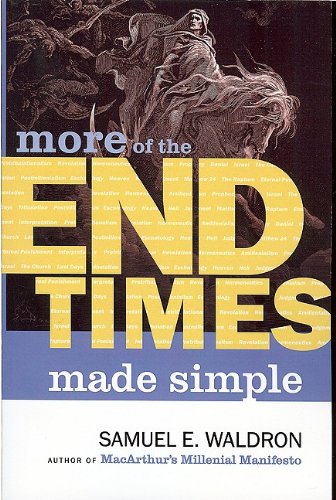Scripture and Worship: Biblical Interpretation and the Directory for Public Worship - Westminster Assembly and the Reformed Faith

Buy online ($)
Type
Book
Authors
ISBN 10
1596380721
ISBN 13
9781596380721
Category
Doctrine - Worship
[ Browse Items ]
Publication Year
2007
Publisher
Pages
181
Subject
Learn about worship, Scripture, and the Westminster Assembly
Tags
Description
"This is the second volume of a new series published by the Craig Center for the Study of the Westminster Standards, sponsored by Westminster Theological Seminary in Philadelphia... series edited by Carl R. Trueman ... entitled The Westminster Assembly and the Reformed Faith. This volume contains two essays, the distillation of the lectures by the two authors at the seminary's seventy-fifth anniversary in 2004. Each of these essays deals with an aspect of the work of the Westminster Assembly (1643-1648), the body that composed the doctrinal standards of the world's Presbyterian churches.
The first essay, "Scripture and the Westminster Confession," is by Richard A. Muller, professor of historical theology at Calvin Theological Seminary. Muller is an expert in the development of theology from the time of the first generation Reformers Luther and Calvin over the next century, the time of the so-called Reformed Orthodoxy. His classic work, Post-Reformation Reformed Dogmatics, demonstrates the continuity in thinking and belief from Calvin to the Reformed theologians of the seventeenth century. He dismantles the popular modern idea that the Westminster divines were a new breed of theologians, dry and brittle, forsaking the reasonable and more flexible theology of the first generation Reformers.
In this essay Muller makes this same point in a detailed study of the Westminster doctrine of Scripture, found in the first chapter of the Westminster Confession of Faith. He is particularly interested in the interpretation of Scripture that led to the statements in the Confession. Muller compares the proof texts and argumentation in the Confession with the exegetical tradition of earlier Reformed theologians and exegetes, as displayed especially in the English Annotations, a sort of study Bible published and revised before the Assembly met. Muller includes other pre-Assembly exegetical works as well. There was overlap between the editors of the Annotations and the writers of the Confession, and there is a clear exegetical tradition from that earlier time that shows up in the Westminster Standards and the associated proof texts. Muller convincingly contradicts the theories of some critics of the inerrancy of Scripture, like Jack B. Rogers and Donald K. McKim, who claim that the Westminster doctrine is a shift from the earlier Reformers. Muller's scholarship is outstanding, and most welcome for defenders of the Westminster teaching concerning Scripture.
The second essay, "The Directory for Public Worship," is by Rowland S. Ward, a Presbyterian scholar and pastor in Australia. Since many Presbyterian churches today do not use this Directory, many may not be familiar with its contents. Ward does an excellent job providing a running commentary on the Directory and in explaining the meaning and background of many of its phrases and expressions that may escape even a careful reading. The text of the Directory, including some explanatory alternate readings by Ward, is printed in the appendix. I would recommend that the reader begin by reading the Directory before reading Ward's discussion of it in the text of his essay; that would make many of his points more clear. What is especially interesting and helpful about this essay is the historical background for many of the statements in the Directory, and for the Directory as a whole.
Both these essays are interesting and well documented. They provide an excellent companion to the Standards themselves. I look forward to future books to be published in this series."
"Since their writing in the seventeenth century, the Westminster Standards have been the benchmark for confessing Presbyterian churches the world over. But despite the longstanding influence of the documents, many today count them to be the result of shallow proof-texting, over-systematization of doctrine, logic- chopping, and plain theological ignorance.
These essays by Richard A. Muller and Rowland S. Ward take a fresh look at the Standards in their historical context. The first part of the book investigates the exegetical background to the Confession, and the second explores the issues, priorities, and debates behind the Directory for Public Worship.
The resulting volume not only will offer the careful reader a model of how to study historical theological documents, but will also rekindle interest in the Westminster Standards as part of the church's great creedal and confessional tradition..."
Number of Copies
1
| Library | Accession No | Call No | Copy No | Edition | Location | Availability |
|---|---|---|---|---|---|---|
| Main | 150 | 1 | Yes |




